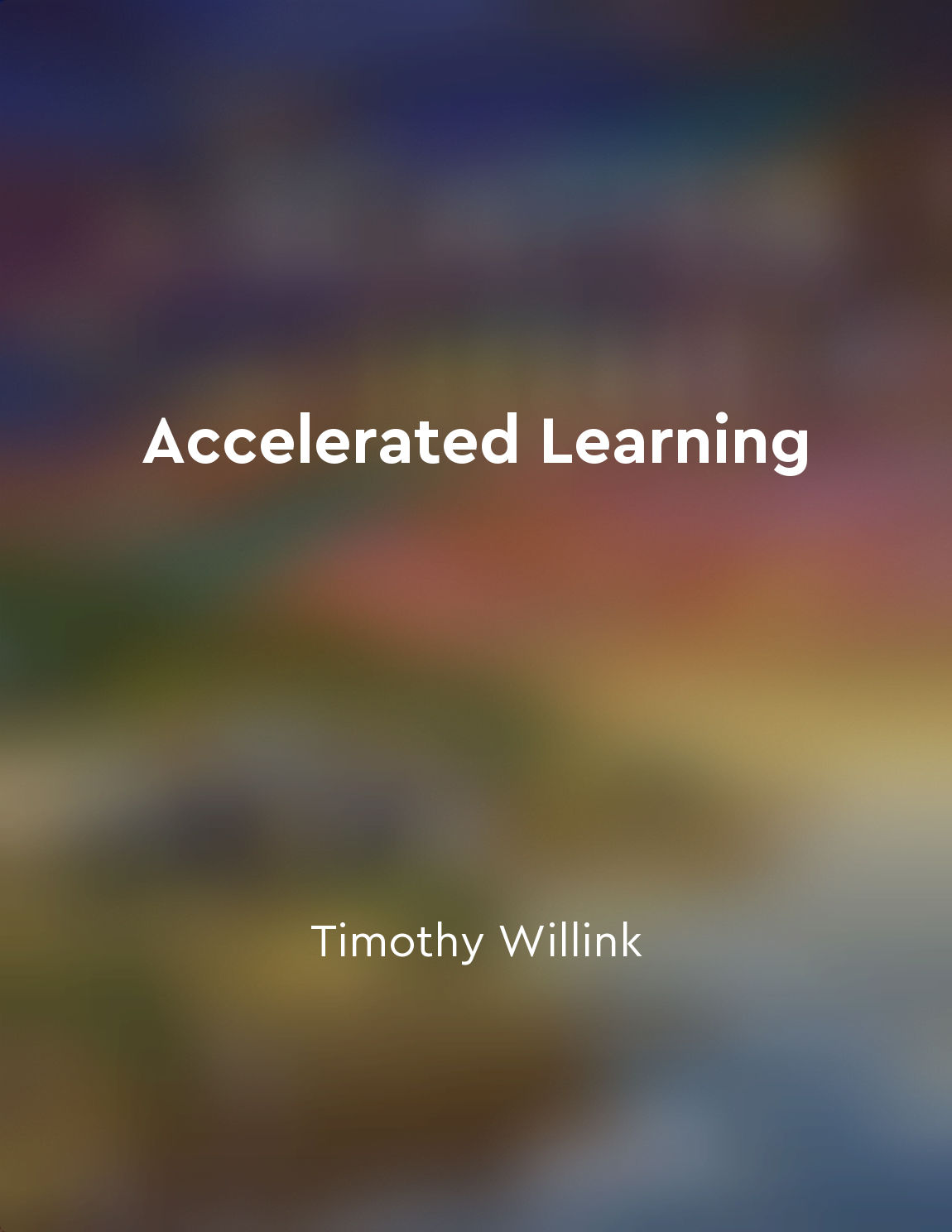Labeling and categorizing information aids in recall from "summary" of Make It Stick by Peter C. Brown,Henry L. Roediger III,Mark A. McDaniel
When we take information and categorize it according to its meaning or label it with a specific tag, we are essentially making connections in our brains that help us remember that information later on. This process of organizing information helps our brains create a more cohesive network of knowledge, making it easier to retrieve that information when needed. By assigning labels or categories to different pieces of information, we are essentially creating mental shortcuts that aid in recall. Labeling and categorizing information not only helps us remember individual pieces of information but also allows us to see how different pieces of information are connected to one another. When we group related information together under a common label or category, we are creating a framework that helps us understand the relationships between different concepts. This interconnected web of knowledge makes it easier for us to recall information because we can use these relationships to trigger memories and associations. Moreover, the act of labeling and categorizing information forces us to engage more deeply with the material. When we take the time to think about how different pieces of information are related and categorize them accordingly, we are actively processing that information rather than just passively absorbing it. This deeper level of engagement helps solidify the information in our memories, making it more likely that we will be able to recall it later on.- Labeling and categorizing information is a powerful tool for improving our ability to recall information. By creating connections between different pieces of information, organizing them into meaningful categories, and actively engaging with the material, we can enhance our memory and make it easier to retrieve information when needed. This process not only helps us remember individual facts but also allows us to see the bigger picture and understand how different pieces of information fit together.
Similar Posts

Embrace a growth mindset for continuous improvement
To excel in the learning process, it is essential to cultivate a growth mindset. This mindset is characterized by a belief that...

Cognitive overload impairs decisionmaking
One of the key insights from 'Your Brain at Work' is the idea that when our brains are overloaded with information, our decisio...
Embrace the Pomodoro Technique for improved focus and productivity
The Pomodoro Technique is a simple yet powerful method for enhancing focus and productivity. By breaking your work into managea...
Recognize the value of continuous selfimprovement
Continuous self-improvement is a concept that involves a commitment to constantly enhancing one's knowledge, skills, and abilit...
Maintain a growth mindset to overcome challenges
Having a growth mindset is the key to overcoming challenges when pursuing ultralearning projects. Instead of seeing obstacles a...
The power of collaboration for collective learning and growth
Collaboration is a critical component of learning and growth in today's fast-paced, interconnected world. When individuals come...
Applicationbased questions for real-world context
The concept of application-based questions for real-world context is a crucial aspect of learning in the field of science. Thes...
How general knowledge can shape a successful career
General knowledge plays a crucial role in shaping a successful career. It provides individuals with a well-rounded understandin...
Consistency in practicing mental exercises is key to success
Achieving success in sharpening your mind requires a dedicated and consistent effort in practicing mental exercises. Just like ...
A comprehensive question bank for NEET and AIIMS exams
The NEET/AIIMS Objective Question Bank for Physics, Chemistry & Biology is designed to provide a wide range of practice questio...

